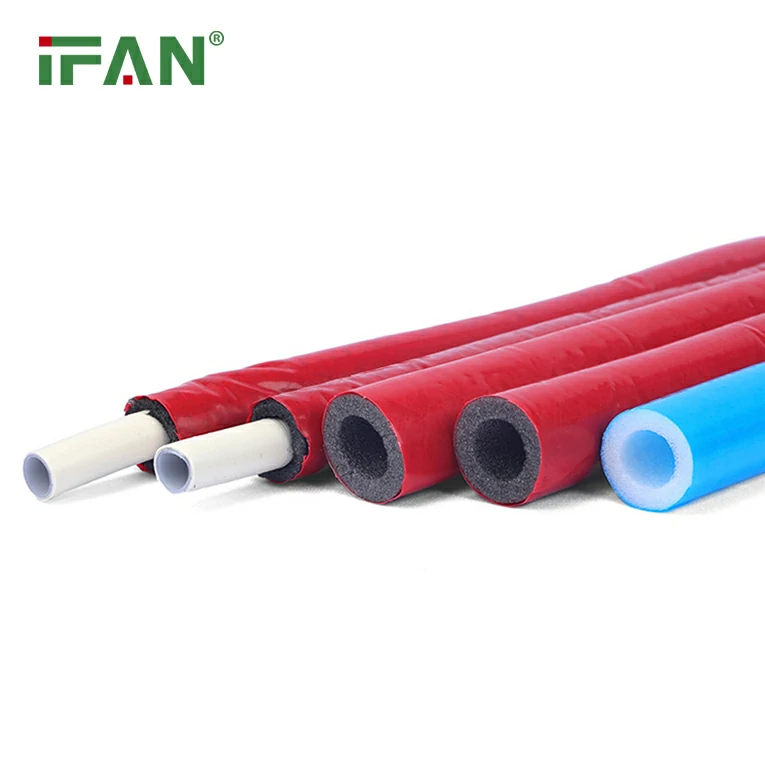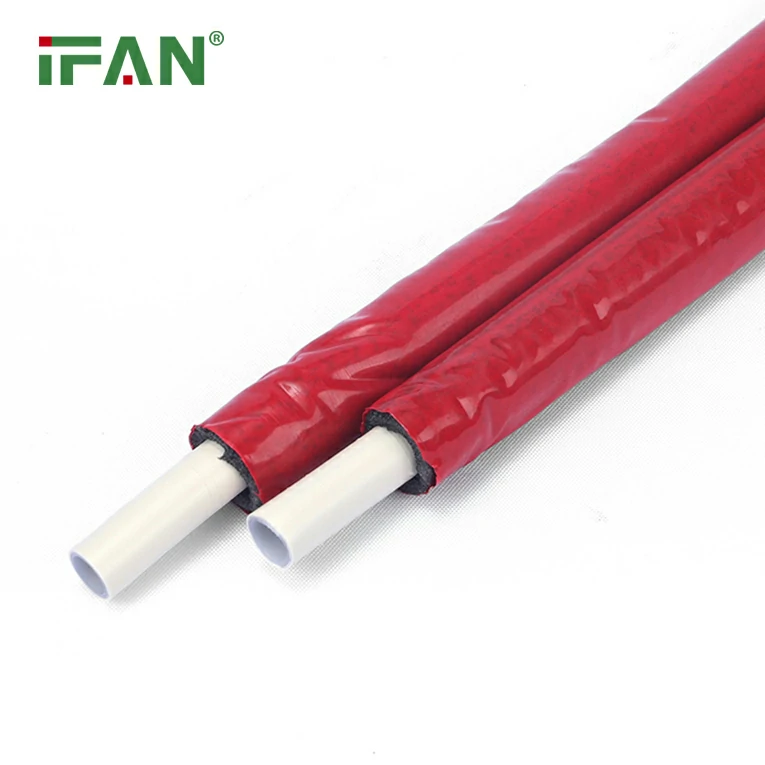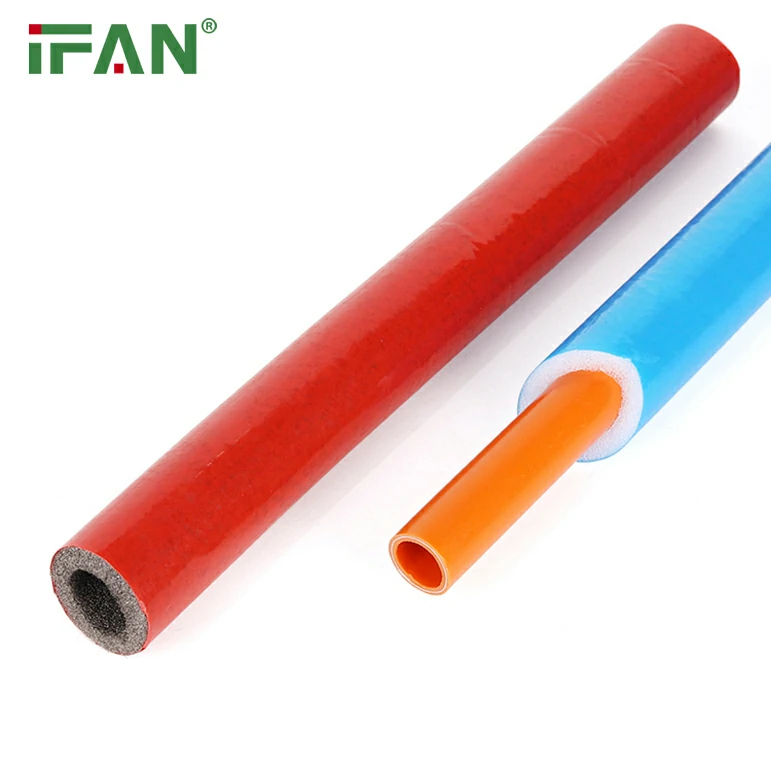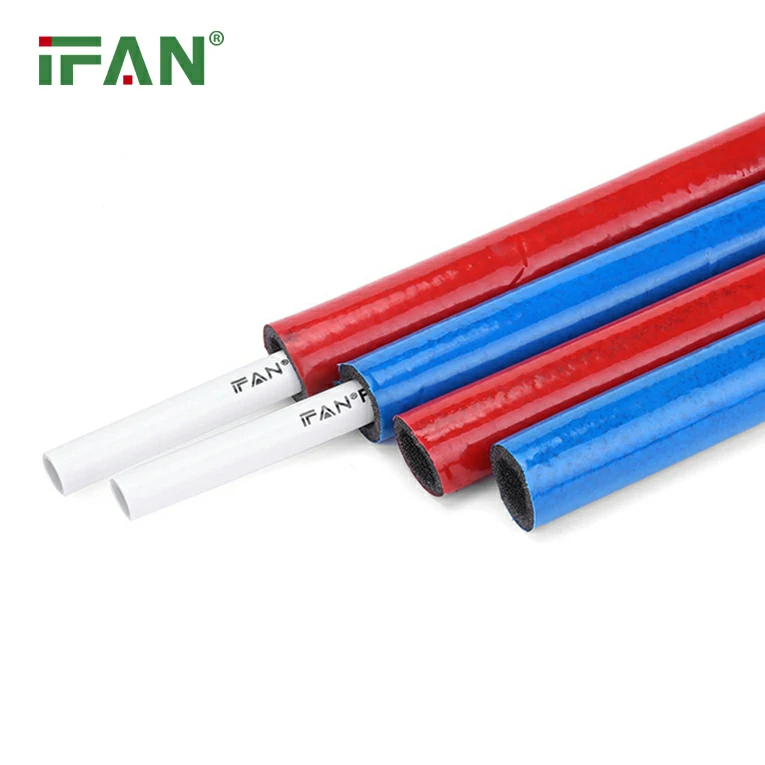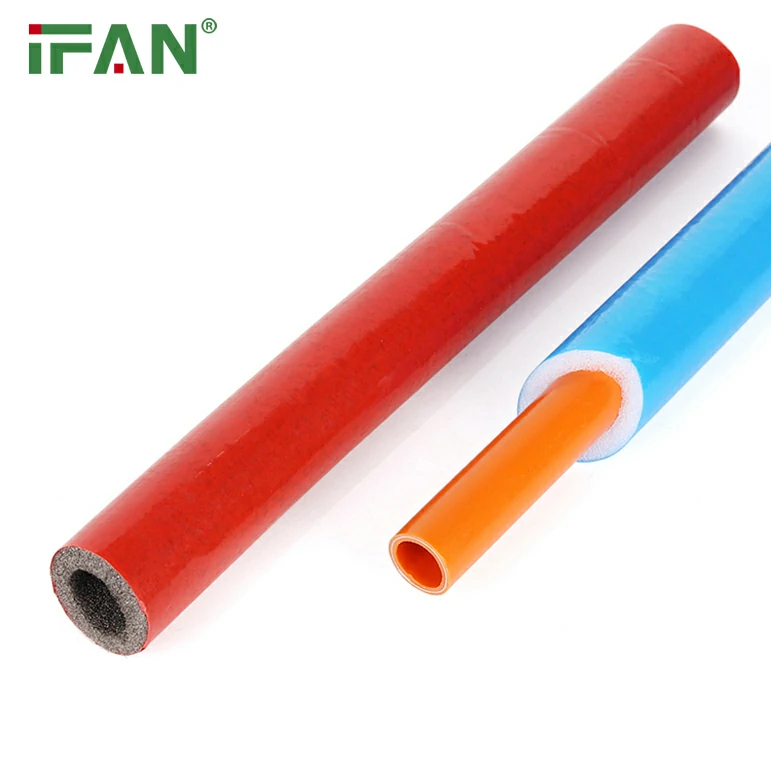Introduction
As the demand for efficient plumbing and irrigation systems grows, PEX (cross-linked polyethylene) piping has become a popular choice due to its flexibility, durability, and resistance to corrosion. However, one of the major challenges that PEX pipes face, especially in colder climates, is the risk of freezing. When water inside PEX pipes freezes, it expands, which can lead to ruptures and costly repairs. This article will explore effective methods for protecting PEX pipes against freezing, while also highlighting the benefits of using PPR (Polypropylene Random Copolymer) pipes as an alternative solution.
Understanding PEX Pipes
What are PEX Pipes?
PEX pipes are made from cross-linked polyethylene, a type of plastic that has been chemically treated to enhance its properties. These pipes are widely used in residential and commercial plumbing systems due to their unique characteristics, which include flexibility, resistance to corrosion, and the ability to withstand varying temperatures.
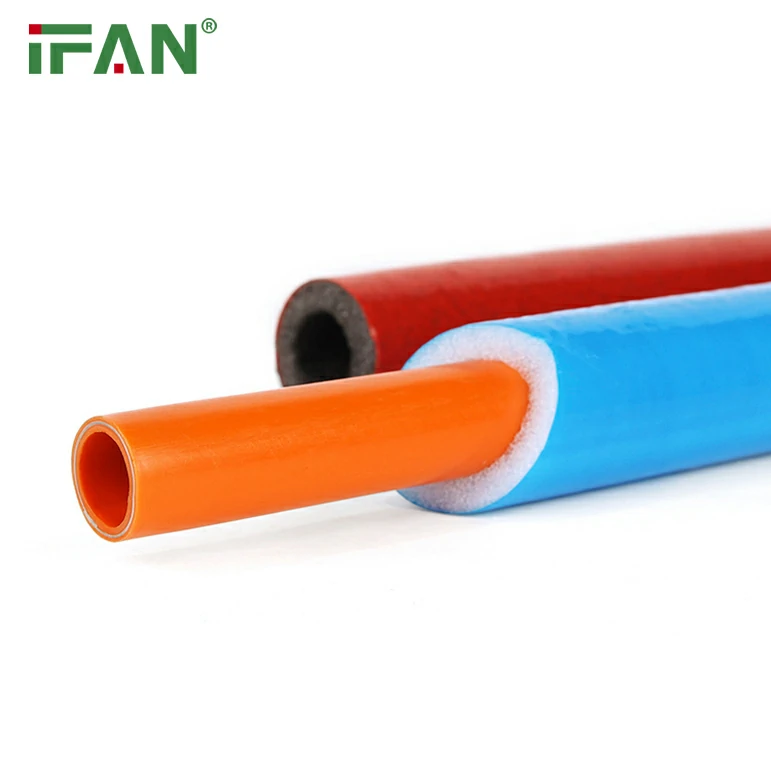
Benefits of PEX Pipes
- Flexibility: PEX pipes are highly flexible, allowing for easy installation in tight spaces and around obstacles. This flexibility reduces the need for fittings, which can be potential leak points.
- Corrosion Resistance: Unlike metal pipes, PEX is resistant to corrosion and scale buildup, ensuring a longer lifespan and better water quality.
- Thermal Insulation: PEX pipes provide excellent thermal insulation, which helps maintain water temperature and reduce energy costs.
- Cost-Effective: While the initial cost of PEX may be higher than some materials, the long-term savings from reduced maintenance and energy costs make it a cost-effective choice.
- Reduced Noise: PEX pipes are quieter than traditional metal pipes, minimizing noise from water flow, which is particularly advantageous in residential settings.
The Freezing Problem
Why Do PEX Pipes Freeze?
PEX pipes can freeze when exposed to temperatures below freezing, especially if they are not adequately insulated or if the water flow is stagnant. When water freezes, it expands by approximately 9%, which can exert tremendous pressure on the walls of the pipe. If this pressure exceeds the strength of the pipe, it can lead to ruptures and significant water damage once the ice thaws.
Consequences of Frozen PEX Pipes
- Pipe Rupture: One of the most serious consequences of frozen PEX pipes is rupture. A broken pipe can lead to water leaks, resulting in water damage to walls, floors, and personal belongings.
- Increased Repair Costs: Repairing a ruptured pipe can be costly, involving not only the replacement of the pipe but also damage restoration and potential mold remediation.
- Water Supply Interruption: Frozen pipes can disrupt water supply, leading to inconvenience and potential health risks if the water supply is interrupted for an extended period.
Protecting PEX Pipes Against Freezing
1. Insulation
One of the most effective ways to protect PEX pipes from freezing is to insulate them properly. Insulation helps to maintain the temperature of the water inside the pipes and reduces heat loss.
- Pipe Insulation Foam: Use foam pipe insulation sleeves to cover PEX pipes, especially in unheated areas such as basements, attics, and crawl spaces. The insulation should fit snugly around the pipe and cover all exposed areas.
- Heat Tape: For areas prone to extreme cold, consider using electric heat tape. This tape can be wrapped around the pipe and plugged into an outlet to provide a steady source of heat, preventing the water inside from freezing.
2. Maintain a Steady Temperature
Keeping the temperature of the surrounding environment stable is crucial for preventing freezing.
- Heating: If possible, maintain a consistent temperature in areas where PEX pipes are located. Use space heaters or heat lamps in particularly cold spots to keep the temperature above freezing.
- Open Cabinet Doors: In kitchens and bathrooms, leave cabinet doors open to allow warm air to circulate around plumbing fixtures. This is particularly important during extremely cold weather.
3. Allow Water to Flow
Moving water is less likely to freeze than stagnant water.
- Drip Faucets: During extremely cold weather, allow faucets connected to PEX pipes to drip slightly. The continuous flow of water will help prevent freezing.
- Keep Valves Open: Ensure that valves are open to allow water to flow freely through the pipes, reducing the chances of freezing.
4. Seal Cracks and Openings
Prevent cold air from entering areas where PEX pipes are located by sealing any cracks or openings.
- Caulking: Use caulk to seal gaps around windows, doors, and any other openings in exterior walls. This will help reduce drafts and keep the area warmer.
- Insulate Walls and Floors: Insulating walls and floors can help maintain a stable temperature in areas where PEX pipes are located, reducing the risk of freezing.
5. Use PPR Pipes as an Alternative
While PEX pipes are widely used, PPR (Polypropylene Random Copolymer) pipes offer several advantages that can help mitigate freezing issues.
Benefits of PPR Pipes
- Higher Temperature Resistance: PPR pipes can withstand higher temperatures than PEX, making them suitable for hot water applications and potentially reducing the risk of freezing.
- Longevity: PPR pipes have a lifespan of over 50 years, significantly longer than PEX. Their resistance to corrosion and wear makes them a reliable choice for long-term plumbing systems.
- Chemical Resistance: PPR pipes are highly resistant to a wide range of chemicals, making them suitable for agricultural applications where fertilizers and pesticides may be used.
- Ease of Installation: PPR pipes can be joined using heat fusion techniques, creating strong, leak-proof connections that minimize the risk of leaks.
- Eco-Friendly: PPR pipes are made from recyclable materials, contributing to a more sustainable plumbing solution compared to PEX, which is derived from petrochemicals.
Conclusion
Protecting PEX pipes from freezing is essential to maintaining a reliable plumbing system and preventing costly repairs. By employing insulation, maintaining steady temperatures, allowing water to flow, sealing cracks, and considering alternative materials like PPR pipes, homeowners and businesses can effectively safeguard their plumbing systems against the harsh effects of winter. As technology continues to evolve, the options available for protecting and improving plumbing systems will only expand, ensuring that they remain efficient and durable for years to come.
Frequently Asked Questions (FAQs)
1. What is the best insulation for PEX pipes?
Foam pipe insulation sleeves are highly effective for insulating PEX pipes. For extreme cold, electric heat tape can also be used to provide additional warmth.
2. Can PEX pipes freeze in unheated areas?
Yes, PEX pipes can freeze in unheated areas, especially if they are not properly insulated. It’s essential to take precautions in these spaces.
3. How can I prevent my PEX pipes from freezing during winter?
To prevent freezing, insulate the pipes, maintain a steady temperature, allow water to flow, and seal any cracks or openings in your home.
4. Are PPR pipes a better alternative to PEX for freezing issues?
PPR pipes can be a suitable alternative as they have higher temperature resistance and greater longevity, which may reduce the risk of freezing.
5. What should I do if my PEX pipes freeze?
If your PEX pipes freeze, turn off the water supply and apply gentle heat to the affected areas using a hairdryer or heat tape. Avoid using open flames, as this can damage the pipes. If the pipes are ruptured, contact a professional plumber for repairs.

